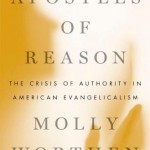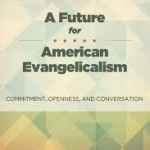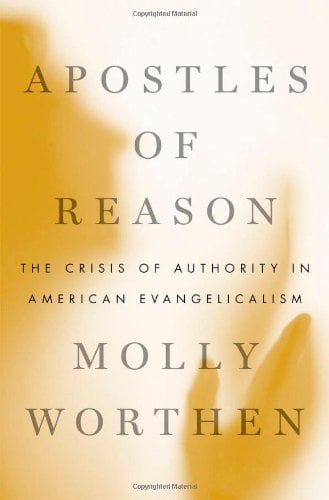 Here are the closing two paragraphs of Molly Worthen’s book Apostles of Reason: The Crisis of Authority in American Evangelicalism
Here are the closing two paragraphs of Molly Worthen’s book Apostles of Reason: The Crisis of Authority in American Evangelicalism (see here for the previous post, which will lead back to the first in this series).
I think these paragraphs are an apt conclusion to the book, expressing both criticism for the intellectual history of evangelicalism while also acknowledging strengths. Bolded portions are my emphais.
*******
The term evanglecial mind conjures images of a creature of many faces sharing one brain, or at least a movement of people who think and act in concert. No metaphor could be further from the truth. This story of shifting and conflicting authorities, evolving alliances and feuds, and debate over the essence of Christian identity means that it we continue to speak of an evangelical mind–if we continue to use the word evangelical at all, and we will–we must allow room for diversity and internal contradiction, for those who love the label and those who hate it. We must recognize that American evangelicalism owes more to its fractures and clashes, its anxieties and doubts, than to any political pronouncement or point of doctrine.
It may be wiser to speak instead of an “evangelical imagination.” In every individual, the imagination is the faculty of mind that absorbs ideas and sensations as fuel to conjure something new. It is a tool for stepping outside oneself or plunging into egocentric delusion. But we might also speak of the imagination that a community shares, no matter how furious its internal quarrels: a sphere of discourse and dreaming framed by abiding questions about how humans know themselves, their world, and their God. The evangelical imagination has been both an aid to intellectual life and an agent of anti-intellectual sabotage. Above all, it is a source of energy: energy that propels evangelism, institution-building, activism, care for the suffering, and a sincere passion for intellectual inquiry. It offers no clear path past the impasse of biblical authority, no firm discipline for the undecided mind, and no reconciliation with the intelligentsia of secular America. But any crisis of authority is no longer a crisis if it has become the status quo. If the evangelical imagination harbors a potent anti-intellectualism strain, it has proven, over time, to be a kind of genius.
Several things strike me here, but I will mention only one: the call for diversity in the use of the term “evangelical.” The term is here to stay in American culture, and rather than fighting and hand writing over who has the divine right to use the label, perhaps there is a better way forward: to embrace significant internal diversity as as part of the evangelecial identity.
To do this, however, the American evangelical power brokers will have to lay down their guard and allow for an evolution (if I may use the word) in what the label means. I think this will be hard to so, given that evangelicalism was created to protect boundaries rather than entertain a redefinition of those boundaries.
I suppose we shall see.











